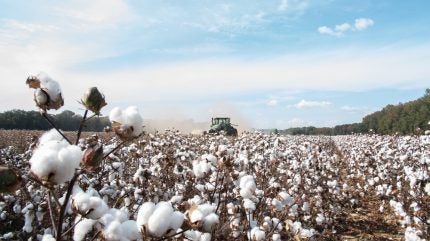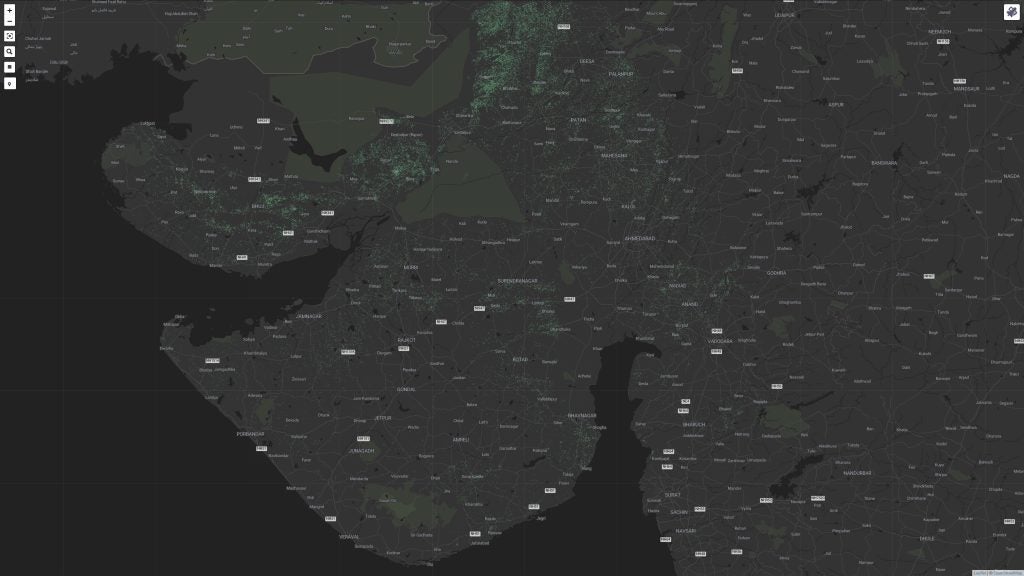
GOTS explained this project addresses critical industry challenges by aiming to boost the availability of organic cotton while safeguarding fibre integrity, further strengthening GOTS’s existing robust measures.
Co-financed by Global Standard, the non-profit behind GOTS, and the European Space Agency’s (ESA) Business Applications and Space Solutions (BASS) programme, GOTS said the project leverages the Cotton Cultivation Remote Assessment (CoCuRA) software developed by Marple.
Field teams surveyed over 6,000 cotton fields across Gujarat, Haryana, Madhya Pradesh, and Maharashtra in India, gathering data on crops, soil types, and cultivation status. Marple then used this data to refine CoCuRA’s algorithm for India’s cotton specifics.

Describing the software use, GOTS said that once the algorithm was trained, it was applied to India’s vast agricultural areas, spanning 2.7m sqkm: “Within seconds, CoCuRA detected all organic and conventional cotton fields with remarkable accuracy. A project of this magnitude is only possible with CoCuRA with no other comparable project or data in existence.”
According to GOTS, the technology’s ability to pinpoint cotton fields where farmers use near-organic or uncertified organic methods can ensure a steady increase in certified organic cotton by facilitating their certification process.
The CoCuRA software is said to integrate AI technology with satellite data to verify cultivation practices meticulously. The data collected reportedly also contributes to Global Standards’ Global Fibre Registry, consolidating comprehensive data on raw material production before entering the GOTS value chain, further adding to fraud detection and prevention.
Jeffrey Thimm, an organic production specialist at Global Standard said: “This technology identifies farmers who use sustainable methods that meet organic standards but lack certification. By integrating these farms into conversion projects, it boosts organic cotton supply, promotes sustainable farming practices and enables farmers to access premiums on their supplies.”
Claudia Kersten, managing director of Global Standard, added: “For over 20 years, we have been pioneering solutions to help the industry on its journey towards sustainability. This project is a game changer, combining satellite technology with AI to meet the growing demand for genuine organic cotton. In addition, this eye in the sky will prevent fraud by allowing us to crosscheck locations and field sizes in a very cost-efficient way. It’s a win-win-win situation: farmers have an incentive to grow organic and improve their lives, the industry can secure its supply and meet its sustainability goals, and consumers have a greater choice of organic textiles.”
Future prospects and global impact
GOTS plans to expand this initiative globally following its successful pilot in India.
Daniel Lanz, managing partner at Marple believes that despite India’s unique challenges, CoCuRA achieved remarkable accuracy in detecting cotton fields and assessing cultivation methods.
“This breakthrough provides a pioneering overview of cotton production in India that would be impossible to achieve on the ground,” he remarked.
Guillaume Tuan Prigent, a business developer and partnership officer in ESA’s Applications Projects and Studies Division added: “The potential impact of the solution lies in its ability to be scaled and this is exactly what we are working on. We are looking to deliver a solution that could have a global impact for the benefit of all.”
Global Standard said it is eager to extend this technology to other regions and fibres, potentially revolutionising crop monitoring methods.
This follows GOTS’ May announcement of launching the “world’s first” project aimed at showing the potential of remote satellite monitoring for organic cotton cultivation systems.



